What is Compost and Why Should We Teach Kids About It?
Composting with kids is a simple way to start getting the whole family more involved in the gardening process. There are so many lessons to learn both in the garden and through the composting process. Round up the family and let’s get started!
Composting is a natural process of decomposition and recycling of organic material (such as leaves, grass, fruit and vegetable scraps) into a rich soil amendment known as compost. It gives tons of opportunities to learn about the circle life and how to complete it. It also teaches kids about responsibility for the waste they generate and how it still has purpose through recycling and composting.
Teaching Kids About Compost
It’s no secret, I’m obsessed with composting. The past few months, I’ve learned so much about the amazing benefits of composting, what not to compost, how to compost with worms, how to compost in small spaces, and I’ve even helped build a compost bin.
I started this blog, so I could share the things I’ve learned. Recently, I started the Master Composter program, which allows me to share my love of composting in person, too. A couple of months ago, I got the opportunity to
Benefits of Composting with Kids
Composting with kids has numerous benefits. Some are instantaneous and direct, while others might be more subtle.
Science Lessons
We can making composting a hands-on science experience. For kids, it will just seem like great fun.
Kids of all ages can learn about the benefits of composting. My mom cares for kids ages 2 to 4. No matter what the age, there are tons of things to learn. It’s a great science experiment that can teach lessons in biology, life cycles, recycling, conservation. Composting allows the kids to actively engage in the science process. They also learn nitrogen vs. carbon materials, importance of bugs and worms in the ecosystem, and how different materials breakdown. They’ll even start understanding the chemical process and how temperature works in the decomposition process.
Practicing Fine Motor Skills
As you separate the materials into different piles, tear up the paper or food scraps, your strengthening your muscles, which helps you develop fine motor skills. In the day of video games, finding fun ways to build muscles is more important than ever.
Learning Patience
One lesson that’s seriously lacking in today’s culture is learning patience. Our day to day activities are trivialized with instant gratification. Compost happens, but not overnight. Composting with kids means being patient and waiting for those materials to decompose. But the end is totally worth it.
Activities to Bring the Family Together
These days, the go-to activity is video games or endless scrolling on Facebook, but that leaves little room for family activities. Composting and gardening is a great way for families to enjoy the great outdoors and receive the many benefits of growing your own food. It helps promote communication, while also developing other important life and self-sufficiency skills.
Benefits of Composting in Schools
If you have a larger group, for example classrooms or schools, you’ll also get the benefit of reducing food waste. Not only will you reduce waste, but you’ll save money when you use compost vs. fertilizer in gardens, plants or school yards.
The kids get first-hand experience about the chemical and biological processes that convert food or yard waste into compost. It will also start kids on the path to understanding the importance and benefits of composting. They can see something that’s otherwise useless be turned into something beneficial for the Earth and humans. This will make them more likely to participate when they’re older.
Other Lessons in Composting
There are so many lessons you can learn in the composting process. Counting materials, learning about the colors of the materials, learning about the insects in the compost bin, counting, measurements. During our lesson, we went over the parts of a worm on the coloring sheet and the kids got to color, too.
Composting with Worms
One of the best activities for kids of younger ages is composting with worms. Unlike some composting bacteria and insects, worms are big enough to observe and hold. (Most) Kids love playing with worms. You can learn more about how to set up a vermicomposting bin, and see if it’s right for your family. If you’ve had a worm bin before, but it didn’t work, check out these common vermiculture problems and solutions.
Tips for Composting With Kids
Composting with kids doesn’t have to be difficult. Just take it one step at time and learn as a family. Even the youngest kids can learn about compost. It’s a simple formula and has so many benefits. Teach preschoolers how compost can be used. Learn more about composting with kids lesson plans.
Choose a bin
To begin composting with kids, you’ll first need to choose a bin. Check out this complete list of types of compost bins. You can build your own bin, or get a compost tumbler. The options are limitless, even if you live in an apartment or small space. If you still can’t decide, which type of compost bin is right for you, take this free quiz.
Interested in composting, but don’t know where to start? Subscribe for access to a free quiz and find the best composting option for you.
Choose a location
Once you choose a compost bin, you’ll need to find the perfect spot for it. There are a few things to consider, does the site drain easily, is it sunny, and is it accessible all year round. You’ll also want to pick a spot with bare soil, not overgrown with plants or paved.
Start Composting
Start collecting materials and fill up your compost bin.
You’ll want to start with a layer of brown, carbon-rich materials. After about four to six inches, add a layer of greens, nitrogen-rich materials. Alternate between layers until you’ve filled your bin. You can see a comprehensive list of nitrogen and carbon materials for composting.
As you add food waste or other nitrogen-rich materials, be sure to cover with the brown materials, such as leaves, paper or cardboard. Your neighbors will be fond of the compost bin, however the four and six-legged creatures will be more appreciative, if you don’t have the correct portions of materials.
Most of the composters come with instructions inside, follow these instructions for best results.
Add Water
As you add your starting layers, make sure to add water in between. The compost should be like a wet sponge. So as you add more browns to your compost pile, make sure to add a healthy dose of water to the organic materials.
Maintain Your Compost Bin
Once you have a full compost bin, mix and turn the compost every 7 days or so to help the breakdown process and eliminate odor. The more you turn the pile the faster you will have finished compost.
Complete Compost
It takes anywhere from 3 months to 12 months to produce your healthy compost. The time it takes can vary widely depending on the materials, amount of turning, and methods used.
Finished compost is dark and crumbly in texture and mostly broken down with a pleasant earth-like smell. To remove the compost, scoop it through the trap door on your unit. Sift or pick out any lumps or pieces of unfinished materials and place them back into the compost bin to continue decomposing.
Use your compost
Finished compost can be used for:
- Use your compost as a top dressing for flower beds.
- Add to houseplants.
- Mix compost in with garden soil.
- Can be spread on your lawn a few times a year.
- Make compost tea. Fill an old pillowcase or cheesecloth with 1 liter of compost. Tie the top and “steep” the bag overnight in a garbage can filled with water. The compost tea is nutrient rich for watering your plants and garden.
Don’t forget to pin this information for later!
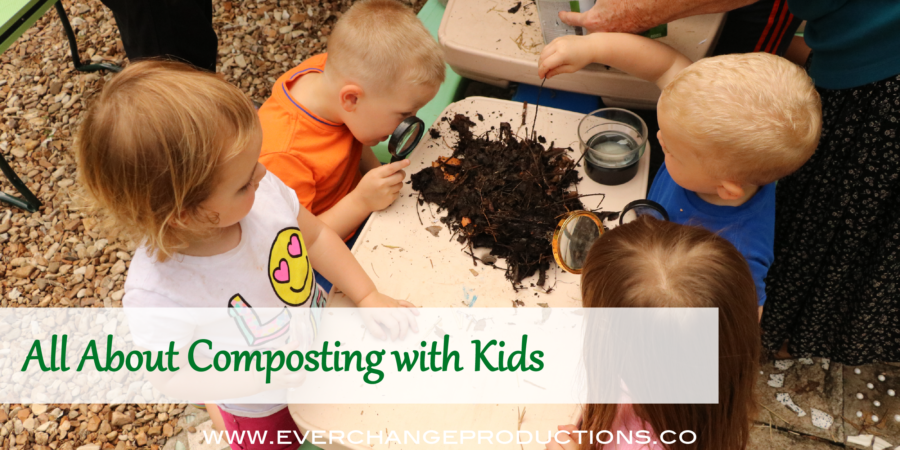
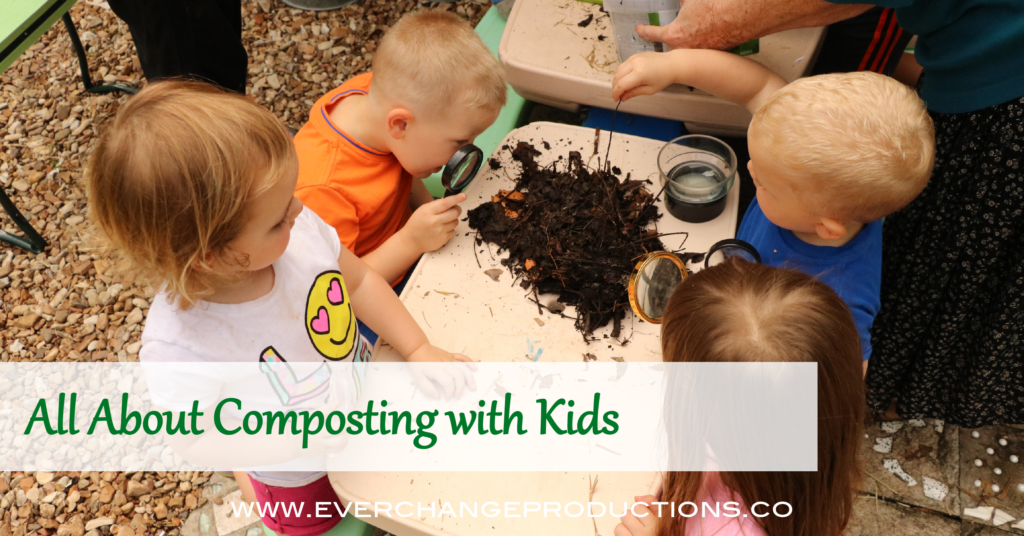
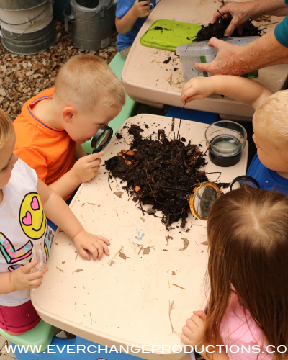
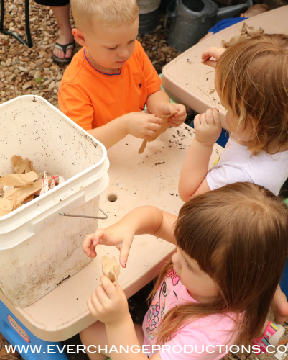
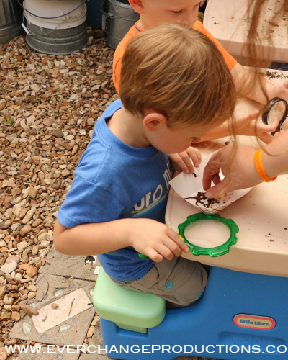
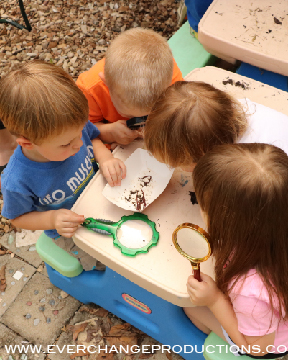
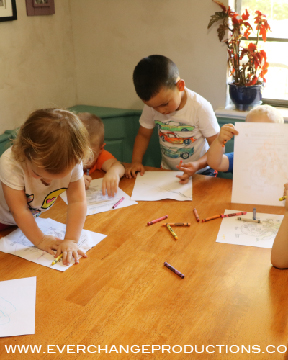
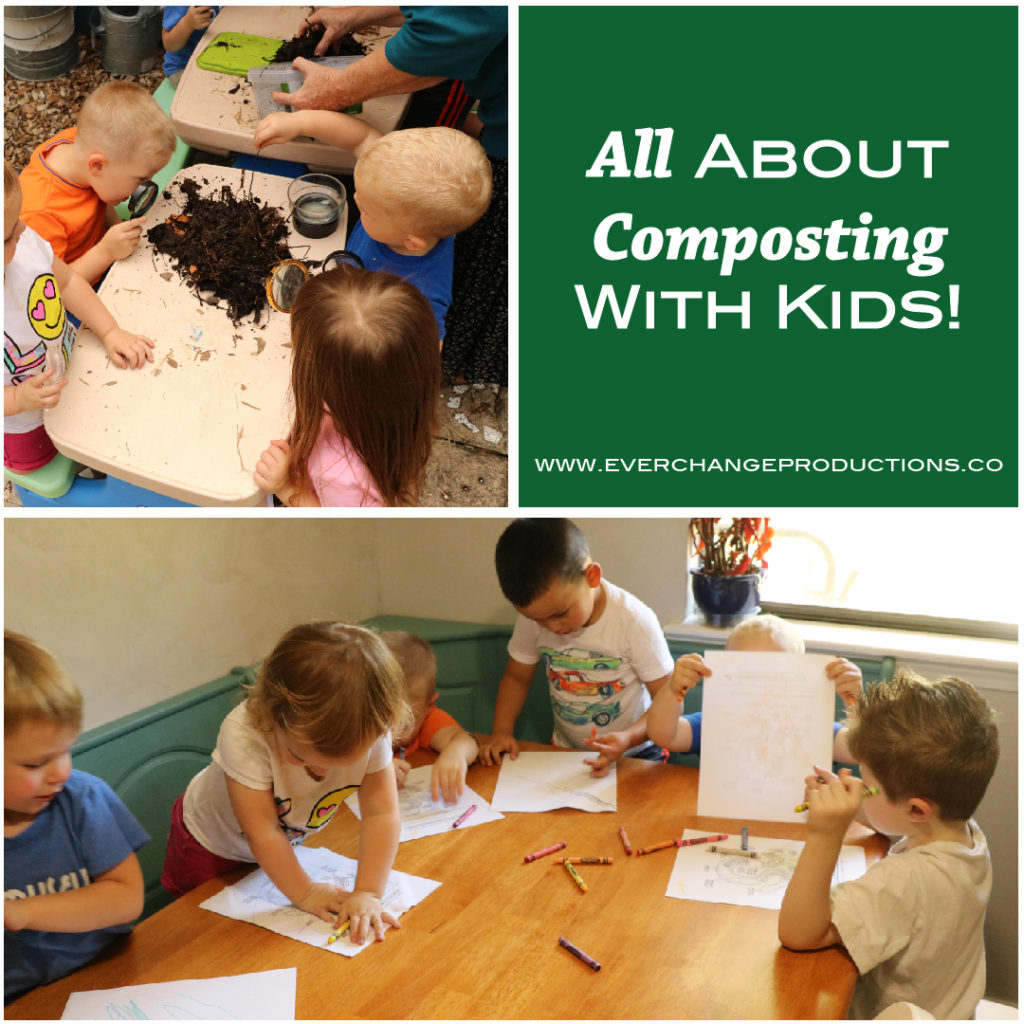
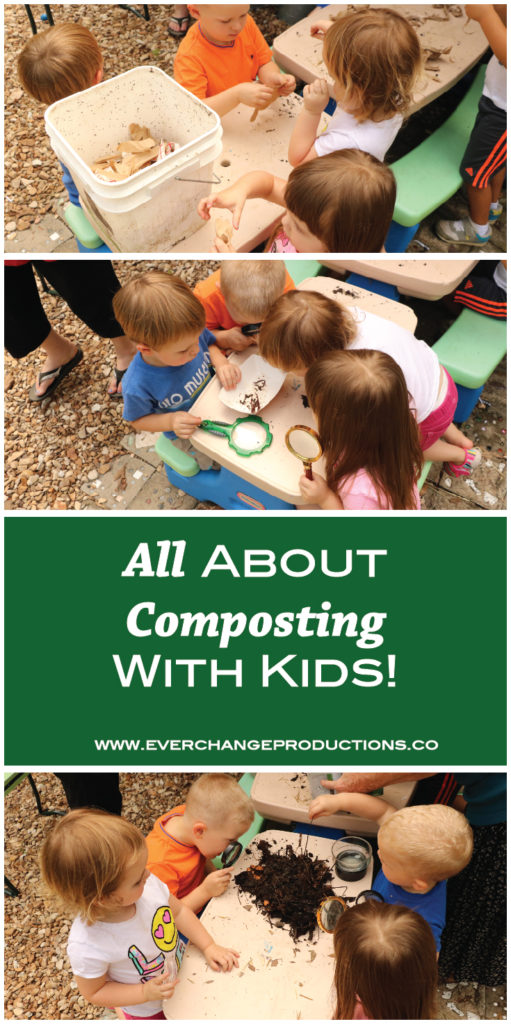
I’m interested in pitching a composting project to a daycare center where I provide services-
Any thoughts on best way to do this?
Thanks
Jane
I would put together a packet on why you think this would be a good addition to the services or activities they provide. Additionally, you could put together a plan that addresses their concerns such as who would be responsible for the bin, if there any dangers associated with composting, etc. Thanks for reaching out and good luck!
[…] If you want to begin composting at daycare or school, you’ll have to find a place to compost. Click here to see what you’ll need when choosing a place to compost and how to build compost in that space. […]